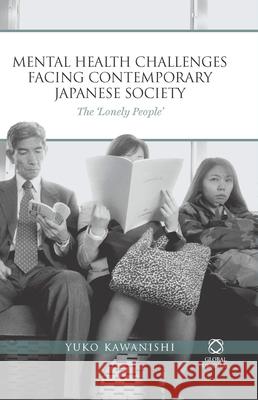Mental Health Challenges Facing Contemporary Japanese Society: The 'Lonely People' » książka
Mental Health Challenges Facing Contemporary Japanese Society: The 'Lonely People'
ISBN-13: 9781906876005 / Angielski / Twarda / 2009 / 178 str.
This book addresses the profound question of mental malaise in its many forms in contemporary Japanese society, focusing on three main areas: work, family and youth. The purpose is to provide an analytical, critical account of the social psychological state of the Japanese today, as well as to present possible measures that could contribute to positive outcomes. Following the boom and bust years of the Japanese economy in the 1980s and 1990s, Japanese society was faced with the burden of rapid change and adjustment resulting in a significant increase in psychological and personality disorders at a level unknown in the past. These include karo-jisatsu (suicide by overwork), sekkusu-resu (sexless marriage), kateinairikon (in house divorce) and hikikomori (complete social withdrawal). This study will be widely welcomed by sociologists, psychologists and mental health professionals interested in the interconnectedness of culture and social structure, personality and psychopathology, and the historical development of these issues. It also offers valuable insight into questions relating to cross-cultural understanding.











